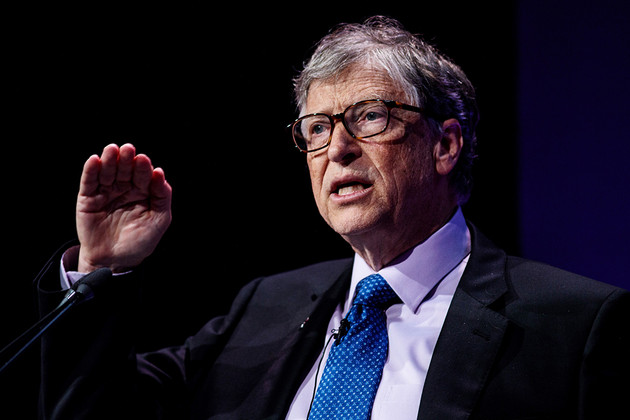Co-chair of the Bill and Melinda Gates Foundation Bill Gates has asked rich and developed countries around the world to work on innovations that would help to drastically curb the cost of green energy for developing countries.
Gates made this known in Lagos on Wednesday while speaking on how science and innovation can accelerate positive change and contribute to a brighter outlook for Africa at an event co-hosted by the Co-Creation Hub Nigeria and the Lagos Business School.
In his address, Gates said that the huge amount of carbon and other greenhouse gases that have been put into the atmosphere really come from the rich countries and the middle income countries.
“And so it’s imperative that those countries, very quickly, do whatever it takes to get rid of their emissions, but also equally importantly, they have to innovate, so that when they come to countries like Nigeria, India, and say, okay, you should make steel the old way or cement the old way, that they innovated so that the new green approach is not a higher cost,” he was quoted as saying.
Read also: Analysis: Australia needs to reduce emissions to net zero to contain global heating
Speaking further, he said “We’re not there today. But over the time since the Paris Agreement in 2015, we’ve made a lot of progress.”
He noted that the issue of sustainability needs to be addressed locally across different sectors, including agriculture to prevent situations where the overuse of fertilisers could cause harm to the ecosystem.
“I’d say if you look locally, there are, you know, sustainability issues. We have that in agriculture, and wherever you overuse fertiliser, you end up degrading the land and you want to take a long-term approach even knowing that the higher temperatures are going to make that difficult,” he said.
Continuing, he said “the second one has got to also do that for African crops and ecosystems, but it’s got to do it at the same time as it’s reducing emissions and looking at sustainability. “So the rivers don’t get so much fertiliser that you’re destroying those ecosystems. So it’s a little bit of a constraint. But with the pace of innovation, I feel we can achieve that.”
Story was adapted from theCable.
